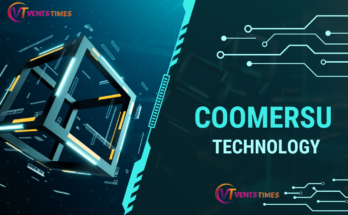Introduction
Intelliscient technologies represent the forefront of modern innovation. They are systems and devices that integrate intelligent capabilities, often using artificial intelligence, to enhance decision-making, automate tasks, and improve efficiency. These technologies promise to transform industries and society at large, providing benefits that range from personalized experiences to optimized processes. In this article, we will explore intelliscient technologies in full detail, examining their applications, challenges, and future potential.
Intelliscient Technologies:
Intelliscient technologies encompass a range of advanced tools and systems that leverage AI, machine learning, and data analytics to achieve smarter outcomes. From healthcare to transportation, these technologies offer unprecedented capabilities. They include intelligent devices like smart home systems and wearables, as well as complex applications in data management and analysis.
Applications in Various Industries
Intelliscient technologies find applications in numerous sectors, such as:
Healthcare:
- Remote patient monitoring and telemedicine.
- Predictive analytics for diagnosis and treatment planning.
- AI-driven drug discovery.
Finance:
- Algorithmic trading and risk management.
- Fraud detection and prevention.
- Customer service chatbots.
Transportation:
- Autonomous vehicles and traffic management systems.
- Predictive maintenance for fleets.
Manufacturing:
- Quality control using AI and machine learning.
- Predictive maintenance and optimization of production lines.
Key Features of Intelliscient Technologies
Intelliscient technologies offer several key features:
Automation: These technologies automate repetitive tasks, allowing humans to focus on higher-level thinking.
Predictive Capabilities: By analyzing vast amounts of data, intelliscient systems can predict outcomes and trends, enabling proactive decision-making.
Personalization: Intelliscient technologies can tailor experiences and services to individual preferences and needs.
Challenges and Considerations
While intelliscient technologies offer immense potential, there are challenges to consider:
Data Privacy: The use of personal data raises privacy concerns, requiring careful handling and security measures.
Bias and Fairness: AI algorithms may inherit biases from training data, leading to unfair outcomes.
Ethical Implications: As intelliscient technologies become more ingrained in society, ethical considerations around decision-making and accountability arise.
Regulatory Hurdles: Regulations may struggle to keep pace with rapid advancements, posing challenges for widespread adoption.
Future Outlook and Trends
As intelliscient technologies continue to evolve, there are several emerging trends and future possibilities to consider:
Edge Computing: This approach brings data processing closer to the source of data generation, reducing latency and improving response times for intelliscient technologies.
Human-AI Collaboration: Future advancements may focus on enhancing collaboration between humans and AI, allowing for a more balanced and effective partnership.
Ethical AI Development: As ethical concerns gain prominence, there may be an increase in initiatives focused on creating transparent, fair, and accountable AI systems.
AI Regulation and Policy: Governments and organizations may develop more comprehensive policies to guide the development and use of intelliscient technologies responsibly.
AI in Sustainability: Intelliscient technologies can play a significant role in promoting sustainability by optimizing resource usage and reducing waste.
The Role of Education and Awareness
To harness the full potential of intelliscient technologies, it is essential to increase education and awareness on the topic:
Training and Upskilling: Providing training for professionals and the workforce will be crucial to effectively integrate intelliscient technologies across industries.
Public Awareness: Educating the general public about intelliscient technologies can help build trust and acceptance while addressing concerns.
Interdisciplinary Collaboration: Collaboration across different fields can lead to innovative approaches and solutions to address the challenges of intelliscient technologies.
Intelliscient Technologies: Full Details and Personalization
One of the most significant advantages of intelliscient technologies is their ability to offer personalized experiences:
Personalized Healthcare: Intelliscient technologies can tailor treatment plans and healthcare experiences based on individual data and preferences.
Customer-Centric Services: Industries such as retail and finance can offer personalized recommendations and services, enhancing the customer experience.
Educational Personalization: AI-powered educational platforms can adapt to individual learning styles and paces, providing a more tailored educational experience.
Navigating the Ethics of Intelliscient Technologies
Ethical considerations are paramount when it comes to the widespread adoption of intelliscient technologies:
Transparent Algorithms: Ensuring that algorithms are transparent and explainable can help mitigate potential biases and ensure fairness.
Accountability and Responsibility: Developers and organizations must take responsibility for the decisions and outcomes of intelliscient systems.
Informed Consent: Users should have clear information about how their data is being used and have the opportunity to give informed consent. Click Here
Conclusion
Intelliscient’s technologies hold immense promise in revolutionizing industries and improving daily life. By balancing innovation with ethical considerations, data privacy, and regulatory frameworks, these technologies can transform the world in a way that benefits society as a whole. As we continue to explore and develop intelliscient’s technologies, a collective effort is required to ensure that these advancements lead to a brighter and more equitable future.
FAQs
How do intelliscient’s technologies contribute to sustainability?
Intelliscient’s technologies can optimize resource usage and reduce waste in industries such as manufacturing and transportation. For example, predictive maintenance helps avoid unnecessary replacements and repairs, while AI-driven energy management systems can optimize energy consumption.
What is the role of edge computing in intelliscient’s technologies?
Edge computing brings data processing closer to the source of data generation, reducing latency and improving response times. This is particularly important in applications like autonomous vehicles and IoT devices, where real-time processing is crucial.
How can human-AI collaboration be enhanced?
Human-AI collaboration can be enhanced through improved interface design, allowing for seamless communication and cooperation between humans and AI. Training and education in AI literacy can also help humans understand and leverage AI effectively.
What initiatives exist for ethical AI development?
Various organizations and governments are developing initiatives for ethical AI development, including creating guidelines, frameworks, and best practices. These efforts aim to ensure transparency, fairness, and accountability in AI systems.
How can personalized services benefit customers?
Personalized services can enhance customer experiences by tailoring recommendations, offers, and interactions to individual preferences and needs. Engagement, loyalty, and satisfaction can increase as a result.




